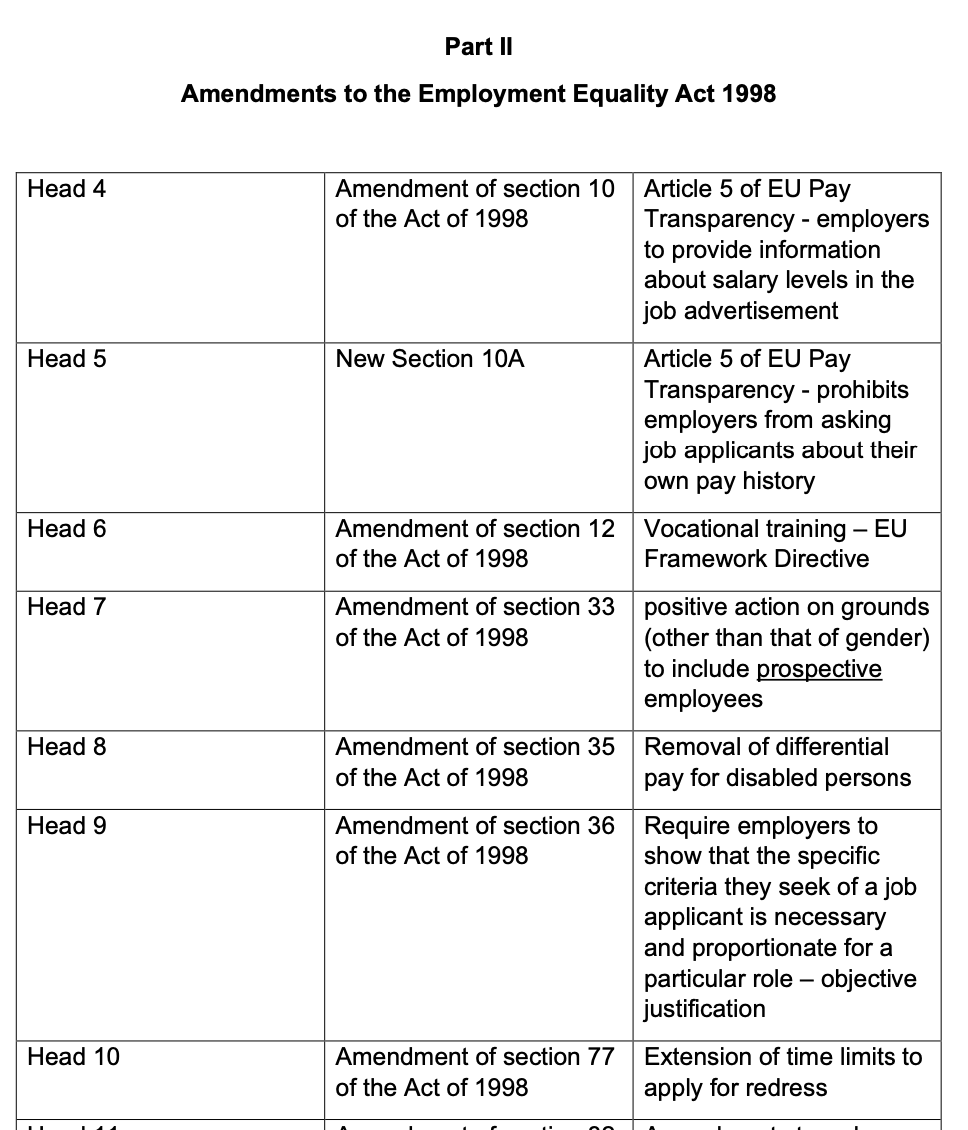July 23, 2025
Get the key points in the latest draft from Ireland, and how it impacts your organization.
Category:
Pay Equity LegislationAuthor:
Alexander Gram
/
CEO & Co-Founder

Ireland has published a draft which amends parts of the EU Pay Transparency, as the first step towards transposing the entire directive. It is worth noting that Ireland has had pay gap reporting in place for years through the Gender Pay Gap Information Act of 2021, which applies to all employers with 50+ employees. As such the EU pay transparency directive will be an extension of previous measures.
The bill is focused on improving the Equality Act of 1998, by integrating parts of the directive and creating a more rigorous standard for transparency and non-discrimination in setting pay.
Two notable amendments focus on enhancing pay transparency:
Additionally, they have chosen to amend sections that oblige employers to justify job criteria objectively, ensuring qualifications or specific job requirements are necessary and proportionate for the role. They have done so with the intent of preventing indirect discrimination.
The bill outlines adjustments to the size of penalties and the duration in which an employee can file a claim:
While generally following the framework of the directive, Ireland's implementation does deviate by requiring salary disclosure directly in job advertisements, surpassing the directive’s less prescriptive standard. In contrast to many other drafts, this is more progressive on the pre-employment transparency.
It’s great to see another country remove some of the unknowns for employers, however we are still missing significant parts of the EU directive. Namely, we are lacking clarity on the amendments related to annual reporting and how they will adjust the existing reporting requirements, combined with the article 7 requirements on employee’s right to information.

